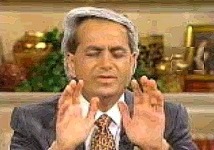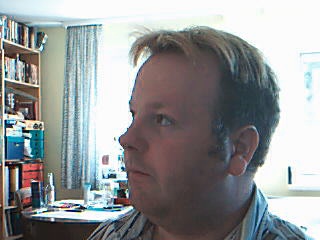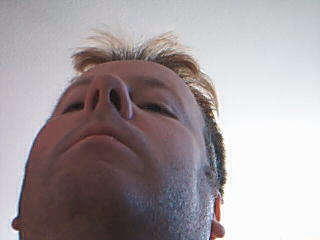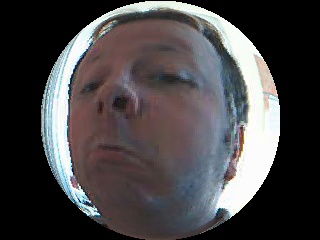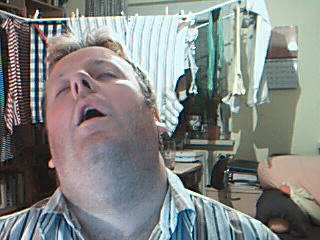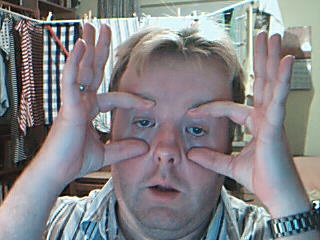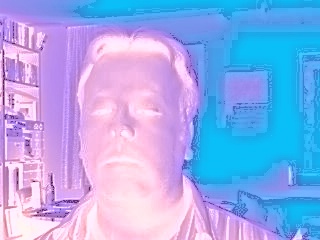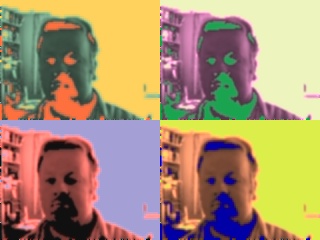Monotheism

There has been much talk in the biblioblog scene recently concerning monotheism, and its definition. First, Mark Goodacre had a look at Paula Fredriksen's claims in relation to Paul's 'monotheism'. She claimed that: "In antiquity, all monotheists were polytheists". Mark finishes his post with the words: 'On the other hand, though, I don't know what to make of 1 Cor. 8.5-6. Paul speaks of those who are called gods (λεγόμενοι θεοί). Does this qualify the connected ". . . many gods and many lords"? Or is the latter clear evidence of what Fredriksen is claiming?'
Then James Crossley had a stab at defining monotheism in this post. His suggestion: 'God is above all; there may be some kind of emanations of this God in some form; and there are beings which can be labelled divine but who do not compromise the overarching God'
Jim West responded to Crossley's post with his own definition: 'God is. This means that God is superior to all, second to none, purity, perfection, love, peace, joy, and kindness along with justice, equity, and judgment. He is Creator, sustainer, and redeemer not only of his people, but of all peoples'. In the comments, James and Jim seemed to conclude that their definitions were not that far apart after all.
In this post I wanted to recommend a short reading list on these fascinating questions. On the history and development of Jewish and Christian monotheism generally I would need to recommend Bernhard Lang's, JAHWE der biblische Gott: ein Porträt (München: Beck, 2002). I am not well read on the question of the origin and development of monotheism, so I cannot comment on that aspect of the book, but his treatment of Paul and Christianity is not too strong, in my view. He argues that a mythology of two gods was necessary in order for early Christianity to make the claim it did in 1 Corinthians 8:6 (cf. 244). But this completely misses the point of what Paul is doing in that verse. Nevertheless, it is a relatively short, lively and well illustrated overview of the whole debate.
Also recommended is Stephen A. Geller provocative essay in One God or Many?: concepts of divinity in the ancient world, ed. by Barbara Nevling Porter (Chebeague, Me.: Casco Bay Assyriological Institute, 2000). He emphasises the different images of God in the OT, coming from the priestly, Wisdom and prophetic traditions. The prophetic tradition pictures the covenant God, a personal covenant partner, which is 'the dominant form of the presentation of divinity' in the OT (280). His reading of the Shema was most thought-provoking in that he understands the 'one' as meaning Yahweh is 'number one' – i.e. supreme! (291). It is not numerical, but evidence rather of henotheism.
The Oxford English Dictionary defines 'monotheism' as 'the doctrine or belief that there is only one God' (322). So Geller goes on to argue that 'true monotheism is a philosophical doctrine and not available before mediaeval philosophy' (324).
At the end of this study the editor summarises that the discussions leave 'us with a heightened awareness of the inadequacy of modern analytical terms such as "monotheism" to describe the complexities, contradictions, and ambiguities that manifest themselves in the varied concepts of divinity as singular or plural, unified or fragmented, espoused by the peoples of ancient Assyria, Egypt, Israel, and Greece'. One wonders, then, if West or Crossley can do justice to the variety of religious language with such definitions.
Nathan MacDonald has made a fascinating contribution in his Deuteronomy and the Meaning of 'Monotheism' (Tübingen: Mohr Siebeck, 2003). His arguments are summarised developed by Richard Bauckham in "Biblical theology and the problems of monotheism," in Out of Egypt: Biblical Theology and Biblical Interpretation, eds Craig Bartholomew, et al., (Milton Keynes: Paternoster, 2004). I refer here for a review of the work.
If anyone is interested in engaging with these questions then it will be impossible to ignore the contributions of Larry Hurtado in his monograph, Lord Jesus Christ: Devotion to Jesus in Earliest Christianity (Grand Rapids: Eerdmans, 2003). He maintains that 'Jewish monotheism of the Roman period (1) accommodated beliefs and very honorific rhetoric about a various principle-agent figures such as high angels and exalted humans like Moses, and (2) drew a sharp line between in such figure and the one God in the area of cultic practice, reserving cultic worship for the one God' (47-48). The way in which Hurtado draws this 'sharp line' is particularly noteworthy:
'This clothing of servants of God with God's attributes and even his name will perhaps seem to us "theologically very confusing" if we go looking for a "strict monotheism" of relatively modern distinctions of "ontological status" between God and these figures, and expect such distinctions to be expressed in terms of "attributes and functions"... The evidence... shows that it is in fact in the area of worship that we find "the decisive criterion" by which Jews and maintained the uniqueness of God over against both idols and God's own deputies' (36-7).
In a crucial passage Hurtado argues the following: 'In particular, some scholars refer to the Jewish monotheism in fairly simple terms as a fixed creedal constraint against attributing any real divinity to figures other than the one God, thus constituting mainly a doctrinal commitment' (42). Thus Hurtado chides Anthony Harvey, among others, for portraying monotheism in terms of doctrines and concepts while 'giving insufficient attention to the cultic/liturgical practices and scruples involved' (43).
Perhaps most important of all is Johannes Woyke's recent work: Götter, "Götzen", Götterbilder: Aspekte einer paulinischen "Theologie der Religionen" (Berlin: de Gruyter, 2005). A warning: his German is not the easiest to read and his style initially put me off. However, the more I have attempted to get into this, the more enjoyable and educational I have found it. In one chapter he builds on the work of O. Hofius in attempting to demolish the sort of arguments represented by Paula Fredriksen - as summarised by Mark Goodacre above. I think that his corrective to the arguments represented by Fredriksen is powerful, though I suspect he goes too far in emphasising the ontological aspect of Paul's monotheism at the expense of the relational import of the avllV h`mi/n at the start of 8:6. Nevertheless, his careful study makes some helpful heuristic distinctions between mono- and poly- theism/latrie and archie (164). He also devises prefixes such as auto and hetero. So, for example, automonolatry concerns the worship of one God by one's own group. And this worship can be abstract (ideological) or concretely expressed. Such distinctions are necessary if one is to avoid misrepresenting the variety and complexity of the varied data.
To be noted is that Nancy Calvert-Koyzis' monograph, Paul, Monotheism and the People of God: The Significance of Abraham Traditions for Early Judaism and Christianity (London: T & T Clark, 2004), does not contribute to this discussion. She defines monotheism in a single sentence ('By "monotheism", I mean the doctrine or belief that there is only one God' - 3).

